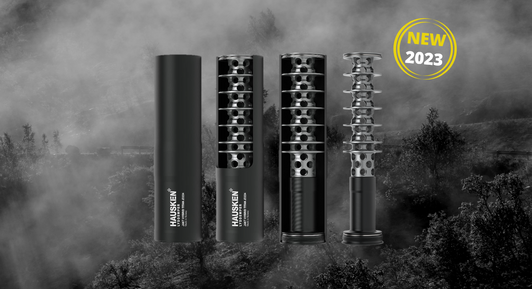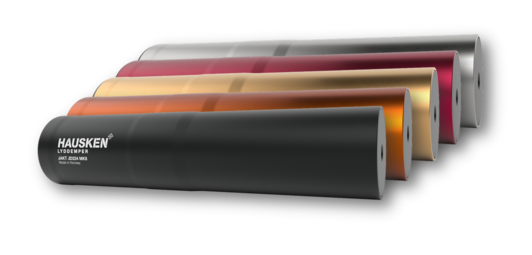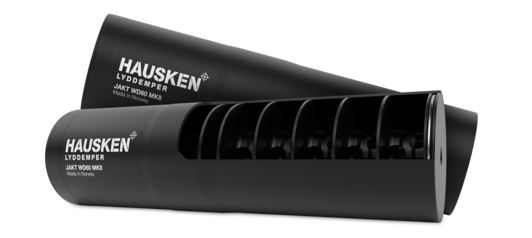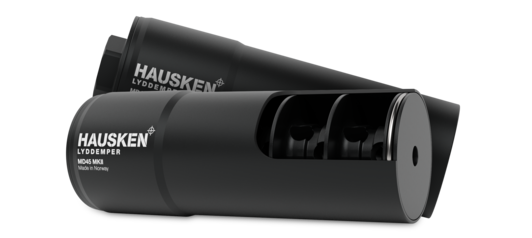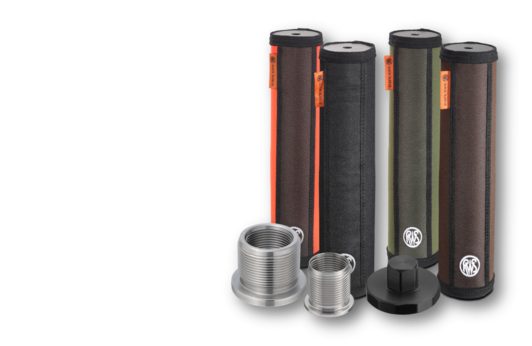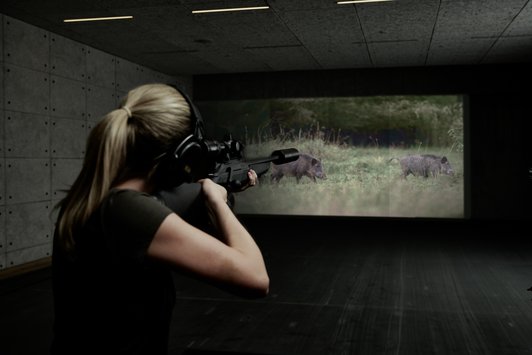EXPERIENCE
THE SILENCE
Hearing is undoubtedly one of the most precious human senses. Read all about hearing, the importance of protecting it from noise and how silencers can help.
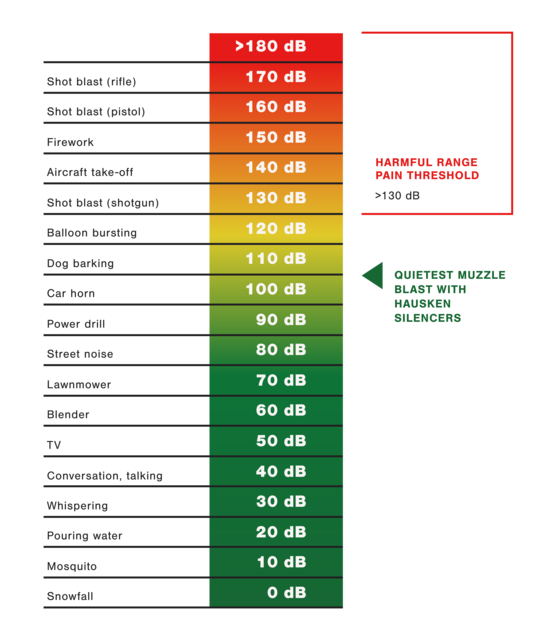
Auditory acuity determines our quality of life
Regardless of whether it is the call of the stag or the cracking of the branches beneath the hooves of roebuck, a telephone conversation, following the latest political news on the radio or television or just listening to the sea – auditory acuity determines our quality of life. It is therefore imperative to protect our ears from harmful noise.
Discharging a shot will usually expose the hunter’s ear to sound pressure levels of up to 170 decibels (dB). This sound pressure is one hundred times greater than the noise of a pneumatic hammer at a distance of one metre.
Due to the high stress, the hair cells of the inner ear are damaged every time a shot is fired. Once they are gone completely, the human body is no longer able to replace them and the shooter will lose their ability to hear. This is just one of the reasons why many hunters around the world suffer tinnitus and become hard of hearing.
“The use of silencers during hunting is a significant technical development that has arisen from the situation of the suffering hunters, myself being one of them.”, says Hans Petter HAUSKEN (inventor of the HAUSKEN silencers).
A change of just 10 dB = twice as loud or quiet
Alexander Graham Bell | DECIBEL
The decibel (dB), as a unit of measurement, was named after Alexander Graham Bell. He developed the telephone to market maturity in the late 19th century. Decibels initially indicated quantify signal loss in a telephone connection. The unit now is now used to express sound pressure levels and as a reference to sound pressure, for example in electrical devices. A sound pressure level of between 130-140 dB is described as the ‘pain threshold’.
Even if the noise is not completely eliminated, the ears are increasingly protected already from a magnitude of more than 20 dB attenuation power (sound pressure level reduction). The rule of thumb applies: Only 6-10 dB sound pressure level change sounds twice as loud or quiet in the individual noise perception. This would enable a consistent reduction in sound pressure level, even with the smallest MINI models, and the noise of the shot would be attenuated significantly and less of a danger to shooters and their surroundings. Brief and sporadic bursts of up to 130 dB would no longer cause substantial damage to hearing and the sensory organs.
HEAR THE DIFFERENCE:
THE HAUSKEN ACOUSTIC COMPARISON
The human ear is exposed to all kinds of noises in everyday life. A hunter who shoots without hearing protection risks permanent damage, tinnitus and irreversable loss of hearing. The dB figures are peak values or measured mean values and self-determined values, deviations are possible in practice.
SAFEGUARD YOUR SENSES WITH HAUSKEN
An increase in sound pressure level of just 10 dB seems twice as loud. Turn up the volume and hear the difference.

The shot blast consists of various components, in which the muzzle blast and sonic boom of the bullet in flight are the predominant factors. The principal aim of silencer developers is to lower the noise of the muzzle blast to a non-critical range beneath the pain threshold of 130 dB.
Discharging a shot causes the propellant to ignite in the cartridge. With the resulting gas pressure of 3500 - 4000 bar, the bullet is propelled out of the case into the barrel. Before the muzzle blast, the compressed gases gradually relax as a the bullet moves through the barrel and an attached silencer. Normally, the projectile is exposed to a residual pressure of 500–600 bar close to the muzzle without a fitted silencer.
As soon as the bullet has exited the barrel, the surrounding gas relaxes further and the impulsive muzzle blast transitions into a shot blast. Common large-caliber hunting cartridges produce sound pressure levels of 160 dB even one metre after the muzzle. The larger the projectile diameter, the higher the measured sound pressure levels.
The disadvantages of using silencers are limited to the restricted usability of the open sights and the increase in overall weapon length and weight. In addition to the additional protection for the hearing organ described above, silencers have many decisive advantages: recoil and muzzle flash are considerably reduced even with high calibres.
